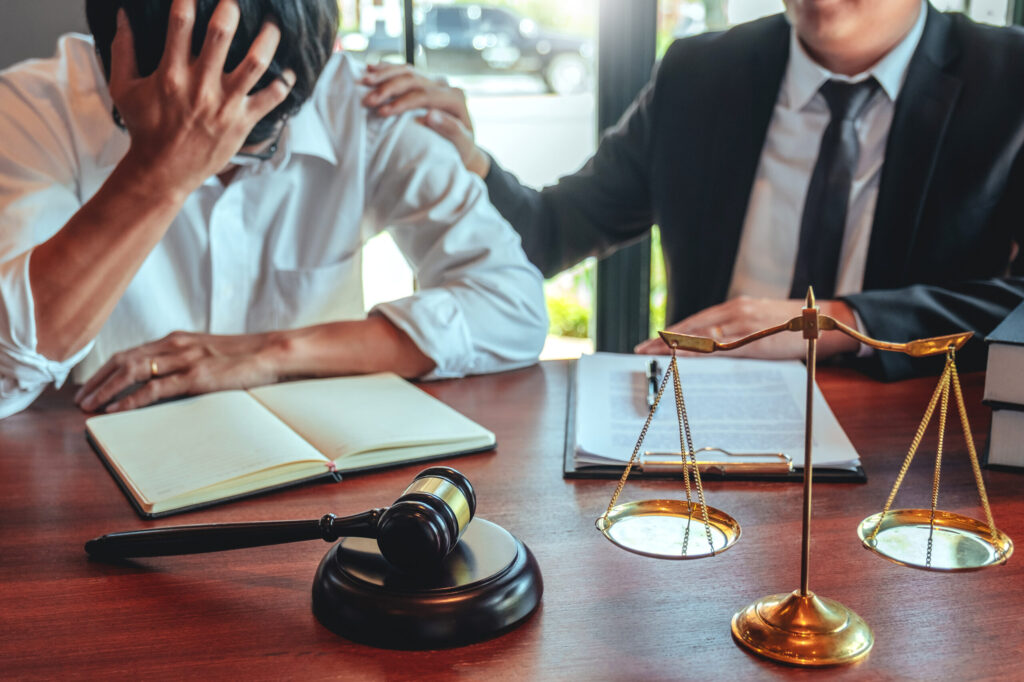The Role of a Domestic Violence Lawyer in Helping Victims Navigate the Legal System
Domestic violence is a pervasive issue that affects millions, creating a labyrinth of legal challenges for survivors. A domestic violence lawyer serves as a crucial navigator through the complexities of the legal system, offering protection, advocacy, and a voice for those who have suffered abuse. Keep reading to understand the multifaceted role these dedicated lawyers play in the fight against domestic abuse.
Understanding the Role of Domestic Violence Lawyers

Domestic violence lawyers are trained to handle the unique challenges presented in abuse cases. They provide not only legal representation but also guidance to help victims understand their rights and options. With expertise in family and criminal law, these attorneys are equipped to deal with the nuances that domestic violence cases often entail, such as confidentiality concerns and the need for swift action to ensure the safety of their clients.
One critical aspect of a domestic violence lawyer’s job is to help clients navigate the legal paperwork and processes that can seem overwhelming, especially during times of crisis. They work closely with their clients to file restraining orders, prepare court statements, and gather evidence that supports the victim’s account of events. This thorough preparation is essential for the success of the case, as well as for the protection of the victim.
Moreover, a domestic violence lawyer Las Vegas will provide emotional support on top of legal advice. The relationship between a domestic violence attorney and a victim is built on trust, and often, the attorney becomes one of the few people the victim can turn to for straightforward advice and empathetic support during a tumultuous period.
Legal Protection Orders: Advocacy and Assistance
Protection orders, commonly known as restraining orders, are one of the first defensive measures attorneys secure for victims of domestic violence. These legal orders are designed to prevent abusers from contacting or coming near their victims. Domestic violence attorneys have the expertise to swiftly obtain these orders, providing an immediate layer of safety for their clients.
The process of securing a protection order can include collecting evidence, representing the victim during hearings, and advising on legal rights and restrictions. Lawyers ensure that their clients understand the terms of the order and the consequences should it be violated. They work diligently to see that these orders are upheld and enforced by the legal system.
Navigating the Divorce Process in Domestic Violence Cases

Divorce proceedings in the context of domestic violence demand a nuanced approach, as the emotional and physical well-being of the victim and any children involved are at the forefront. Lawyers who specialize in domestic violence are well-versed in the procedures for filing for divorce under these sensitive circumstances. They help their clients make essential decisions regarding child custody, support, and property division while ensuring their safety and privacy.
A significant concern in such divorces is the potential for continued coercion or manipulation by the abusive partner. Having a lawyer by their side enables victims to maintain their distance and have their voices heard without facing direct intimidation. The attorney acts as an intermediary who can negotiate on their behalf and protect their interests in court.
The Importance of Legal Support in the Aftermath of Abuse
In the immediate aftermath of leaving an abusive relationship, victims are often in a state of uncertainty and emotional distress. Legal support can provide stability and clarity during this vulnerable time. Attorneys specializing in domestic violence offer a form of advocacy that can empower victims, helping them feel secure enough to take the necessary steps toward recovery and independence.
An important part of a lawyer’s role is to ensure that victims have access to services that will aid in their recovery process. Whether it’s counseling, financial planning, or transitional housing, legal professionals often work closely with social services to secure a holistic support system for their clients while they navigate the long road to recovery.
Overall, domestic violence lawyers play an indispensable role in helping victims navigate the complexities of the legal system and find the path toward justice and healing. Their expertise and advocacy are pivotal to ensuring that survivors of domestic abuse receive the support, protection, and representation they deserve at every step of the way.





